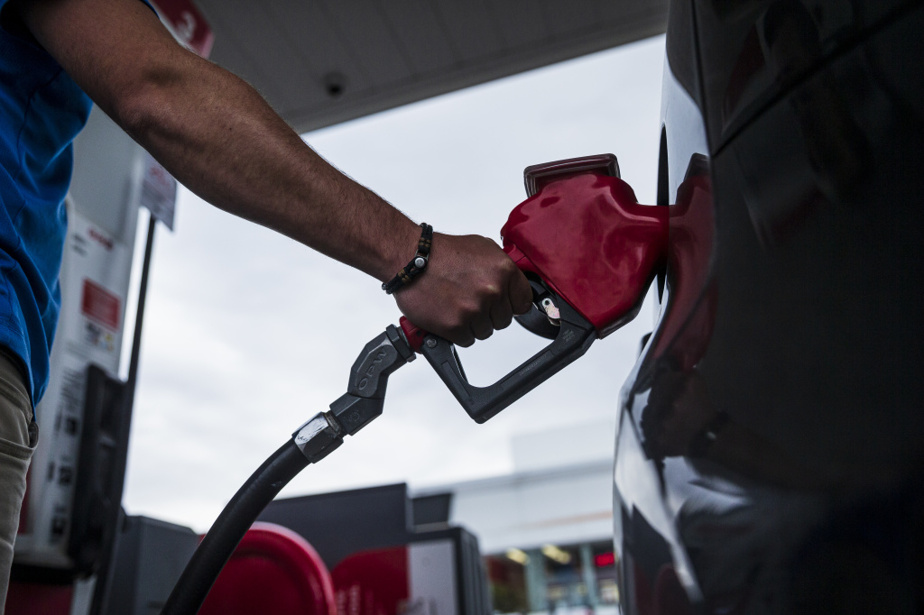The automotive industry has become, over the past few years, one of the sectors that is questioning itself the most about all the precautions to be taken to better protect the environment. This column regularly testifies to this by presenting many new technologies that are resolutely moving in this direction.
But often, when it comes to saving the planet and reducing or eliminating the CO2 emissions produced by our vehicles, we automatically think of electric alternatives first, then of hydrogen. That said, there could be a whole other way to drive greener, and I named biofuels.
Currently, the oil company Shell is in the process of developing a fuel with a low carbon footprint which will probably not go unnoticed, since it could not only innovate in this area, but it could even possibly save the fuel car (the so-called thermal car ) that we have always known. Since the invention of the automobile, in fact.
We already know that in 12 years, the thermal car will gradually become a thing of the past.
From 2035, new gasoline cars will no longer be on the market, in Quebec, Canada or Europe. Let’s get it straight, on that date, fuel-powered cars will still be able to drive, but manufacturers will no longer have the right to sell new gasoline-powered cars to their customers.
This is why associations, oil companies and builders are going out of their way these years to reinvent themselves before the fateful date. We are working hard to find ways to replace these cars, but we also find some who are working hard, on their side, to find a solution that will allow them to continue to offer thermal models to their customers. In addition to the electric car, the door here would be open to a new avenue.
What if, after 2035, the gasoline-powered car could be allowed, as long as it uses a carbon-neutral fuel? It’s a trend that seems to be emerging with our European neighbours, at the very least.
Engineers who evolve for the manufacturers of the famous firms Porsche and Lamborghini are currently working on these types of alternative, cleaner fuels, which will use renewable energies instead of traditional oil.
Several other companies are following suit to collaborate on viable solutions of the kind, including the oil company Shell, which has partnered with the French company Global Bioenergies to produce a fuel which they say would be harmless.
This fuel of the future will be low carbon. It will generate emissions, but very few, so the carbon footprint would be minimal. We are talking here rather about an alternative to oil that would be derived from biosourced raw materials.
This new technology would make it possible to produce real essences, composed from entirely vegetable matter, while presenting exactly the same molecules as those of oil, we are told.
To date, Shell and Global Bioenergies are sparing of details and we can understand why… Nevertheless, these companies claim that this fuel would reduce CO2 emissions by 70% compared to the petroleum fuel that we know.
And if this fuel is not allowed for new internal combustion vehicles, it could be allowed at the very least for all those who will still have the right to circulate after 2035, but whose footprint could be reduced.
In this context, the fuel car may not have said its last word after all.
If the tests are conclusive for these new kind of fuels and the low emission rate falls into the acceptable range and meets the automotive standards that will prevail after 2035, collectors of old cars could be among the first to rejoice. I’m in.
As the owner of a Ferrari 308GTS from the 1980s, I must admit that the development of biofuels that would allow me to stay behind the wheel of my racing car does not displease me at all… If we could keep our old cars while driving green, that would be really awesome. Some of these cars have quite a history. Often, we can even situate ourselves in time thanks to them.
But for now, the game is not won. We will have to see if, in the future, we will have to (and if we can) adapt the engines of these classic cars to use these new fuels.
A few other questions also remain unanswered. Will the production of this clean fuel be on a large scale and will it be accessible in large quantities? Probably in Europe, but here too? And will it cost…reasonably? Only the future will tell us. As soon as I know more, I organize myself to let you know…
I am very proud to be the president of the Loterie PROCURE campaign cabinet, a fundraising activity for this Quebec organization dedicated to the fight against prostate cancer. I discovered the PROCURE organization thanks to my friend Jean Pagé, who played a crucial role in breaking taboos around prostate cancer. Much more than our passion for sport, what I keep from him are the values that Jean personified during his life. PROCURE’s values are John’s values. His love for human beings, his compassion for being reassuring and finding solutions to the challenges that arose in his personal life, as well as at work, and his courage. Thank you for helping me support PROCURE. Together, we can make a difference for the 12 Quebecers a day who are diagnosed with prostate cancer.
